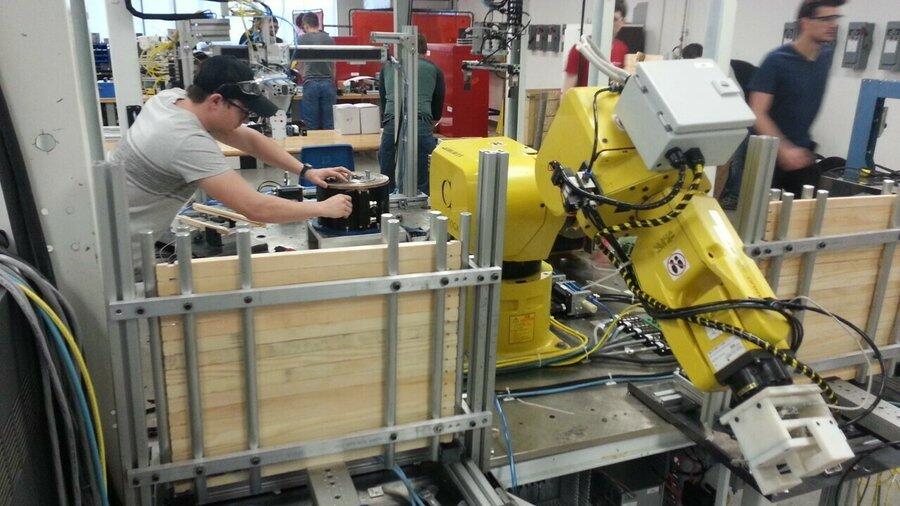Conestoga’s School of Engineering & Technology is launching a new degree major in fall 2025, giving students in the Bachelor of Engineering in Mechanical Systems Engineering program the option to pursue a joining and welding major after completing their second year.

Students in the Bachelor of Engineering in Mechanical Systems Engineering program will now have the option to pursue a joining and welding major after their second year.
This major offers interdisciplinary studies of engineering design, welding and joining processes, engineering metallurgy, metal additive manufacturing, and non-destructive evaluation, complemented by robotics and automation.
“The Fall 2025 cohort in our Bachelor of Engineering in Mechanical Systems Engineering will have an exciting opportunity to specialize with a major in joining and welding — a unique offering that responds directly to industry demands,” said Marilyn Powers, dean of the School of Engineering & Technology and a professional engineer.
Students who pursue the new major will gain practical and theoretical knowledge in welding and joining to tackle real-world challenges. Graduates can pursue a qualification as an International Welding Engineer through the International Institute of Welding.
“Through hands-on learning in our state-of-the-art labs and shops, students will gain cutting-edge skills in areas like additive manufacturing, advanced welding processes and automation. This specialization not only equips them for rewarding careers, but also prepares them to make a global impact as International Welding Engineers, driving innovation across industries,” Powers said.
Welding engineers are in high demand, partly due to the few available programs that produce highly skilled graduates both in Canada and the United States. Conestoga’s new major in welding and joining will be a unique option in the field, in particular for the project-based learning model that begins early on in the program - a feature noted as a distinct advantage by industry representatives on the program development advisory committee.
“I believe that there is a strong economic need for this specialized major, and that its participants will develop a unique and in-demand mix of theoretical and practical skill sets,” Inderpal S. Jaswal, registrar and director of quality assurance at the Canadian Welding Bureau, said in a letter of support for the program. “I am confident that program graduates will be valuable additions to today’s industry competitive environment, as there is an identified need for welding engineers in the local and national industry.”
Walters Group, which has been designing, fabricating and constructing steel for commercial and industrial projects throughout North America for more than 65 years, reports it is experiencing labour shortages in particular for welding skills and welding engineering, as are many other steel fabricators.
Natalia Strelbytsky, vice-president of People & Culture, welcomes more programs focused on developing skilled welding engineers.
“We have been partnering successfully with colleges and universities in our community, and we would be happy to explore any possibility to offer co-op opportunities for the program’s students, as well as hiring graduates as part of our team.”
The Bachelor of Engineering - Mechanical Systems Engineering program, delivered at the honours level, is accredited by the Canadian Engineering Accreditation Board, allowing graduates to become professional engineers after completing their mandatory work experience and writing a professional practice exam. The program is delivered in a project-based curriculum model allowing students to learn by doing while developing strong skills in business methodologies, project management, environmental protection and interpersonal and team dynamics.
